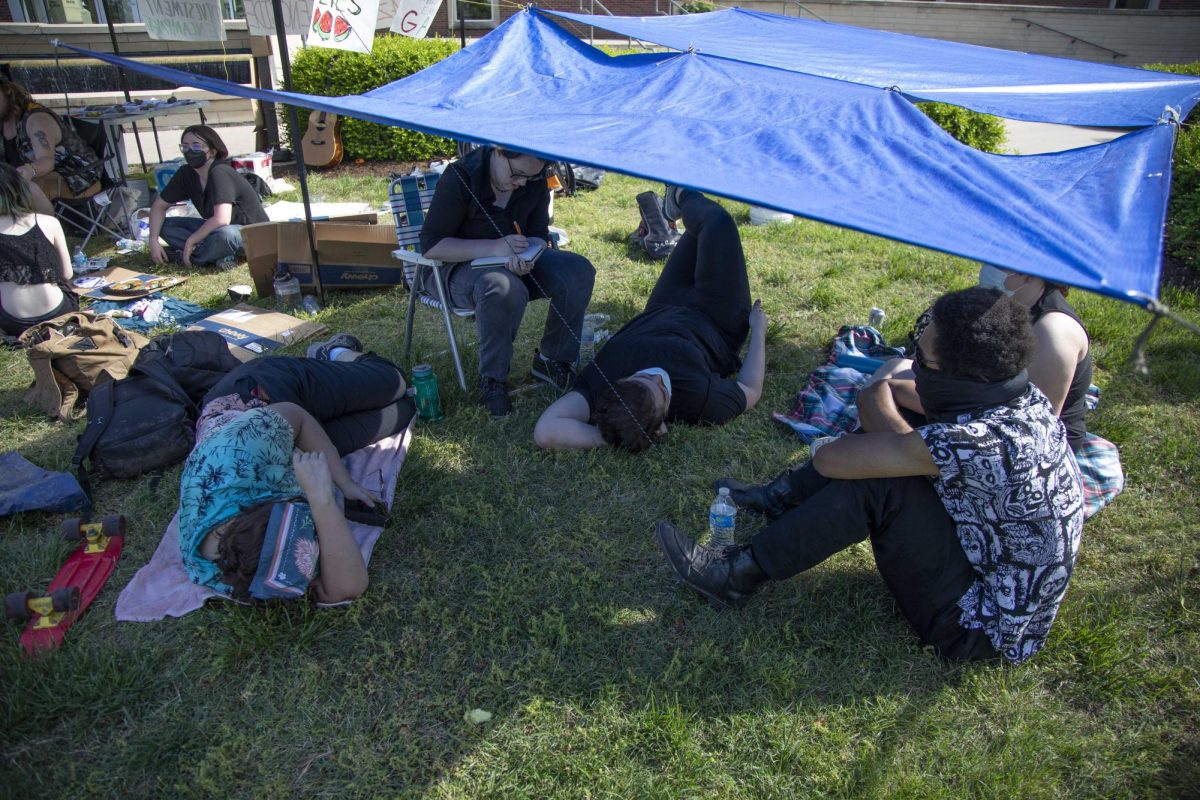College experience could deter student crimes
April 29, 2013
College is a chance for young adults to continue their education and train for a career in the job market, but it might also help prevent students from committing crimes.
According to a Chronicle of Higher Education report, the journal Injury Prevention performed a study that looked at 7,000 senior students from a southern U.S. university with criminal records before attending college. The report stated that students who commit crimes before college are more likely to break conduct codes, but many were not reported to be involved with criminal activities once they left college. The survey also stated 3 percent of students involved in college misconduct reported having criminal records before attending, and less than 9 percent of students who reported having a criminal record were accused of misconduct while attending college.
Advertisement
The survey’s results pose the question of whether students with criminal records are more likely to commit crimes after college.
Danielle Soto, criminology and criminal justice assistant professor, said college is a good experience for young adults because it allows new students to associate with a diverse group of people. College could help students with criminal records establish friendships with students from different backgrounds and introduce them to peers who provide a more positive influence, she said.
“It helps when students can get outside of a delinquent peer group and get away from a bad neighborhood a student used to live in,” she said. “Physically moving away from those influences gives students the chance to make attachments with people who are involved in more socially acceptable activities.”
Soto said attending college gives delinquent students the chance to grow academically, but it would be naïve to assume students avoid illicit activities while attending college.
“Everyone knows undergraduates engage in plenty of underage drinking and drug use,” she said. “College isn’t a straight line. You can focus on your schoolwork, but there are plenty of chances for students to get involved with all kinds of delinquent activities outside of academics.”
It is often difficult for delinquent youths to attend college, because they usually do not have the same opportunities as students from wealthier families, she said.
“You can not just decide that you are going to college, you also have to have the opportunity,” she said. “How students are going to pay for college is a huge concern, and kids with delinquent backgrounds do not usually come from wealthy families.”
Advertisement*
Mary Louise Cashel, psychology department clinical training doctoral program director, said delinquent students are attracted to anti-social groups, where they involve themselves with other delinquents who are involved in illegal activities. When students join delinquent peer groups, she said, they are likely to emulate the group of people they associate with the most.
“Whenever students get caught up in illicit activities, they might quit school altogether, or they end up incarcerated, in which case most students would not continue on through college and other secondary, or post-secondary education,” she said.
Some students know firsthand just how much damage committing a crime can do to a person’s reputation.
Joe Drews, a sophomore from McHenry studying science at McHenry County College, said he is not proud of his criminal charge. Drews and two other accomplices were charged with burglary and arson of a liquor store.
“I was only planning on being a lookout, and we were supposed to be stealing liquor, my friend who went inside tried to burn it down,” he said. “He was caught, so he exposed me and the other guy who was with us.”
He said the repercussions that came with the charges, such as being embroiled in the legal system and missing school, is not an experience he wants to relive again.
Soto said higher education for delinquents comes down to the student, who ultimately must choose how to act while attending college.
“If a student is thinking about doing something stupid, not only will they disappoint your parents, but what if it violates student conduct and gets them expelled, what if a student gets so involved with drugs and alcohol it ruins their GPA and gets them kicked out of school?” she said. “Most students want to take advantage of the opportunities colleges can offer, so the risks associated with endangering a college education are pretty high, and students have plenty to lose.”
Advertisement







